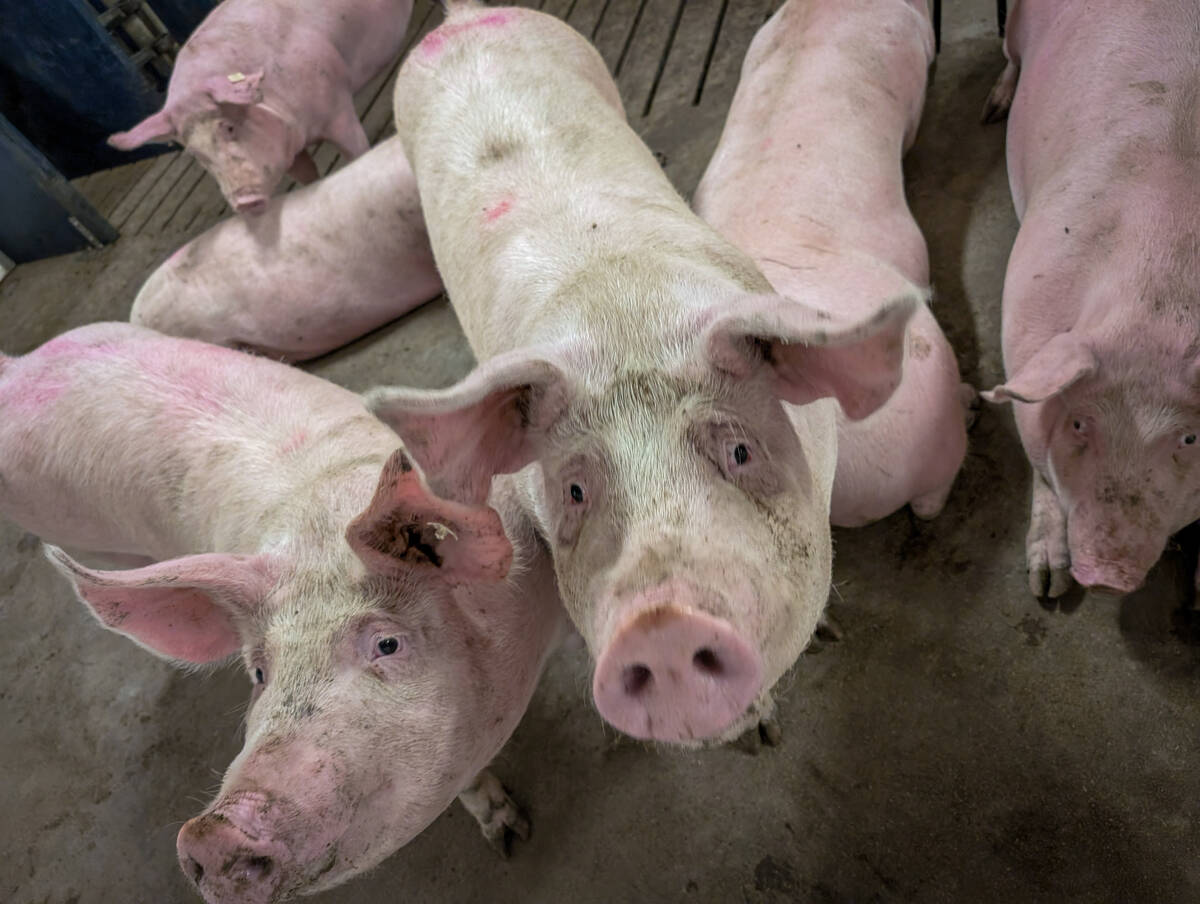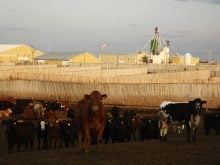The movement of American bred heifers into Canadian breeding herds under the guise of the restricted feeder program has prompted an audit of the program by the Canadian Food Inspection Agency.
“Cows being brought in under the guise of feeder cows and then being sold as breeding stock doesn’t fit the spirit of the program,” said Carl Block, health of animals chair for the Canadian Cattlemen’s Association.
“We’ve been trying to get something done about this particular problem for a year and a half.”
About 165,000 cattle have entered Western Canada from the United States since the end of October, with 140,000 going to Alberta. The import season ends March 31.
Read Also

Pork sector targets sustainability
Manitoba Pork has a new guiding document, entitled Building a Sustainable Future, outlining its sustainability goals for the years to come.
All classes of cattle except unweaned calves are eligible. Females do not
require a pregnancy check.
It is estimated that 10 percent of the U.S. cattle are bred females and may have been resold.
Alaska, Hawaii, Washington, Idaho, Montana and North Dakota are allowed to export cattle without health tests because they are considered low risk bluetongue states.
Ken Orchard of the CFIA said importers of bred animals do not contravene the current regulations, but they are violating the intent of the three-year-old program.
“It’s a concern. Not necessarily for the (health) risk it might pose but because the program was not designed for that,” Orchard said.
“We are auditing where they go from the designated feedlot that they are imported into.”
Feedlot owners must provide documentation showing whether the animals went to slaughter, to another feedlot or on grass.
All cattle entering Canada carry individual identification, so CFIA should be able to track them. Each wears a U.S. Department of Agriculture metal ear tag that is not supposed to be removed.
There are few repercussions for those importing breeding animals.
“We are looking at ways that we can probably tighten this up to stop this,” Orchard said.
The CFIA may send written letters of warning, deregister offending feedlots or cancel import permits.

















